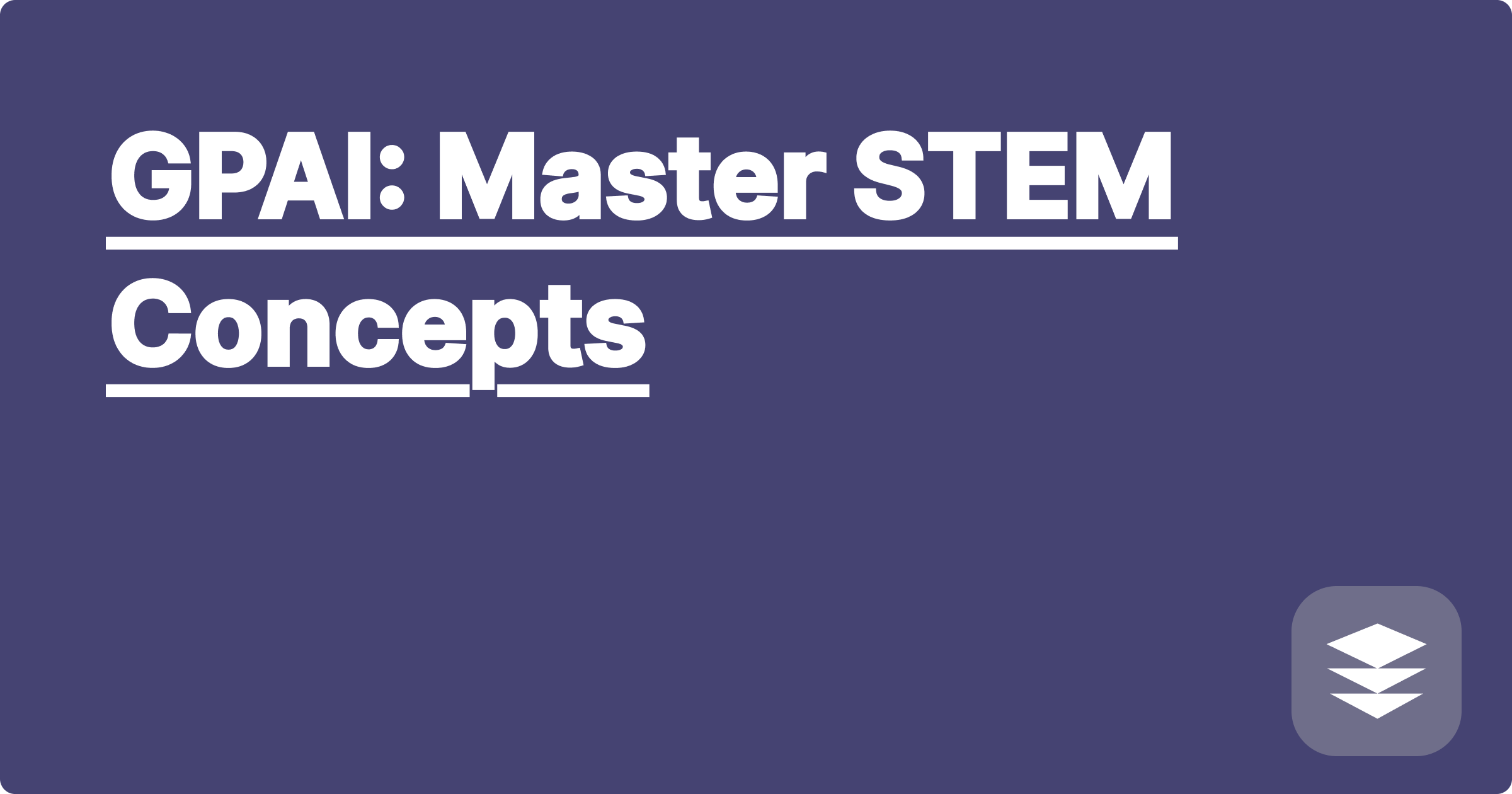
The world of STEM (Science, Technology, Engineering, and Mathematics) presents a formidable challenge: mastering complex concepts and applying them effectively. This challenge is amplified by the sheer volume of information students and researchers must process. Fortunately, the advent of artificial intelligence offers a powerful new toolkit to navigate this intricate landscape. AI can serve as a tutor, research assistant, and even a creative partner, helping STEM practitioners deepen their understanding and accelerate their progress.
This emerging paradigm shift is particularly relevant for STEM students and researchers facing difficulties grasping complex concepts. AI-powered tools offer personalized learning experiences, on-demand explanations, and the ability to explore intricate topics from multiple perspectives. By leveraging these tools effectively, STEM practitioners can not only improve their understanding of core concepts but also enhance their problem-solving abilities and research productivity. This ultimately empowers them to contribute meaningfully to their respective fields.
Many STEM fields are built upon foundational concepts that can be difficult to internalize. For example, in physics, understanding electromagnetism requires grappling with abstract concepts like fields, forces, and vector calculus. Similarly, in biology, comprehending molecular genetics involves navigating the intricate workings of DNA, RNA, and protein synthesis. The inherent complexity of these concepts, coupled with the often dense and technical language used to describe them, can create significant hurdles for learners. Furthermore, traditional learning methods often rely on passive absorption of information, which can be ineffective for truly grasping the underlying principles. This can lead to a superficial understanding that hinders problem-solving and further exploration.
AI tools like ChatGPT, Claude, and Wolfram Alpha offer a novel approach to tackling these challenges. They can provide on-demand explanations tailored to individual learning styles, break down complex concepts into more digestible parts, and offer interactive explorations of abstract ideas. For instance, if a student is struggling with the concept of electromagnetic induction, they can use ChatGPT to ask specific questions, receive clear explanations, and even generate analogies to help solidify their understanding. Wolfram Alpha can be used to perform complex calculations, visualize equations, and explore the relationships between different variables. Claude can assist with summarizing research papers, generating different explanations for a given concept, and even brainstorming potential research directions.
Let's consider a student trying to understand the concept of eigenvalues and eigenvectors in linear algebra. First, they can use ChatGPT to request a general explanation of eigenvalues and eigenvectors. Next, they can ask for specific examples and explore how these concepts are applied in different contexts, such as image processing or quantum mechanics. They can then use Wolfram Alpha to calculate eigenvalues and eigenvectors for specific matrices and visualize the results. Finally, they can return to ChatGPT to ask clarifying questions or explore further applications of the concepts. This iterative process of asking questions, receiving explanations, and exploring examples allows for a deeper and more personalized learning experience.
Consider the Navier-Stokes equations, a set of partial differential equations that describe the motion of viscous fluids. These equations are notoriously difficult to solve analytically, but AI tools can provide valuable insights. Wolfram Alpha can be used to explore specific solutions for simplified cases and visualize the flow patterns. ChatGPT can help explain the physical meaning of each term in the equations and their implications for different fluid dynamics scenarios. For instance, a researcher could use ChatGPT to understand the role of viscosity in the formation of boundary layers.
Another example is in organic chemistry, where understanding reaction mechanisms is crucial. AI tools can help visualize the movement of electrons during a reaction and predict the products formed. For example, a student can use ChatGPT to ask about the mechanism of a specific reaction, like the SN2 reaction, and receive a step-by-step explanation along with diagrams illustrating the electron flow. They can then use Wolfram Alpha to explore the properties of the reactants and products.
To maximize the benefits of AI in STEM education and research, it's crucial to develop effective strategies. Asking specific and well-defined questions is essential for obtaining relevant and useful information from AI tools. Experimenting with different prompts and phrasing can also help elicit more insightful responses. Furthermore, it's important to critically evaluate the information provided by AI tools and cross-reference it with other sources to ensure accuracy. Finally, integrating AI tools into a broader learning or research workflow can significantly enhance productivity and understanding. This could involve using AI to summarize research papers, generate research ideas, or even assist with writing.
In conclusion, AI-powered tools offer a transformative potential for STEM education and research. By embracing these tools and developing effective strategies for their use, students and researchers can overcome the challenges of complex concepts and unlock new avenues for discovery. Start exploring these tools today and discover how they can empower you in your STEM journey. Experiment with different platforms and find the ones that best suit your learning style and research needs. The future of STEM learning is here, and it's powered by AI.